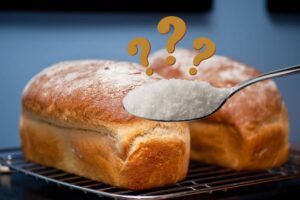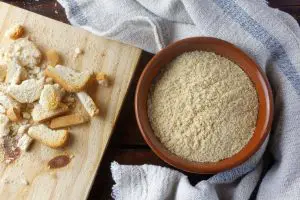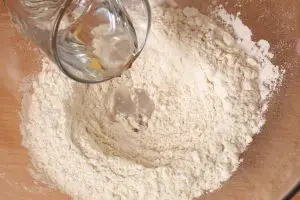Yeast, flour, water, and salt are the key components of a basic loaf of bread. If you use active dried or instant yeast or rely on naturally occurring yeast, as you may for a loaf of sourdough bread, the fundamental bread components don’t alter much from one recipe to the next. People frequently express skepticism about the use of salt in bread, and it’s not difficult to see why.
A teaspoon to a tablespoon of salt can be used in baking bread from home, which may seem like a lot when you consider the recipe as a whole rather than considering how that quantity is split up into very little amounts each serving. As a result, there are a lot of requests about how to modify bread recipes to reduce or eliminate the use of salt.
The quick answer is that yes, you need to salt your bread before baking it. You can create a loaf of bread without using salt, but the appearance and taste of your bread will be significantly improved if you use it.
Last update on 2025-06-14 / Affiliate links / Images from Amazon Product Advertising API
What Does Salt Do in Bread Dough?
Salt works as a yeast inhibitor, slowing down the development and reproduction of yeast in your bread dough. Without salt to control its activity, yeast will consume all of the sugar available in the dough due to enzymatic activity. The use of salt slows down the pace at which the yeast reproduces, allowing you to manage the rate at which the dough ferments.
When salt is added to bread dough, it tightens the gluten strands that develop, making them stronger. Salt helps the dough hold carbon dioxide more effectively by strengthening the gluten strands. This capability is critical since carbon dioxide is produced as a byproduct of the fermentation process. As a result, the dough becomes extremely loose if the gluten strands aren’t strong enough to retain the carbon dioxide properly.
The remaining sugar in the dough, which is present after the amylase enzymes convert the starch in the flour into simple sugars, gives bread its crust color. The leftover sugar on the exterior caramelizes while the bread bakes, giving the signature crust color. However, without salt to inhibit yeast activity, the yeast will easily consume all of the leftover sugar in the dough. Without this sugar to caramelize while baking, the bread’s crust would be light and dull, rather than the rich, browned perfection we all desire.
Salt enhances the flavor of the bread, as it does with practically everything we consume. Bread without salt is dull and flavorless if you’ve ever had the pleasure of experiencing it firsthand. Furthermore, it is not particularly tasty unless you are accustomed to eating low-salt cuisine. It nearly tastes as if there is a critical component missing, which, of course, there is.
How Much Salt Should I Use in Bread Dough?
According to the recipe and personal choice, the usual percentage of salt to be used in bread baking ranges from 1.8 to 2.2% of the total amount of flour used in the recipe. The use of low salt concentrations might result in bland loaves, while anything beyond the 2.2% standard would be regarded as too salty.
A new guideline in the UK has been introduced that calls for 1 gram of salt per 100 grams of finished baked bread, or around 1.5 to 1.6% of the total quantity of wheat used.
As a result, rather than providing a proportion of salt to the flour, they provide the quantity of salt contained in one hundred grams of the completed loaf. Not every baker agrees with this new guideline, so you must try the different recommendations yourself to determine what you feel works best in terms of how your bread turns out.
What Salt Should I Use for Making Bread?
If the salt crystals are tiny enough and dissolve quickly, any type of salt is OK. There is a lot to be said about different salt varieties; some contain additives, while others have additional minerals in addition to sodium chloride, which is regarded as helpful for you.
You may make up your own opinion about the health advantages, but it will not make a significant difference to the taste of your loaf. Due to the minimal amount of salt present, it would be extremely difficult to distinguish subtle variances in flavor.
While you may use a variety of different types of salt for bread baking, it’s preferable to choose a salt that is devoid of chemicals and anti-caking agents to ensure the greatest results. Bakers will often advocate using rock, sea, or kosher salt in their recipes. The reason why is because these types of salt will bring out the most flavor possible without altering the texture of the dish. Fine salt makes measurement and dissolving easier and more efficient.









